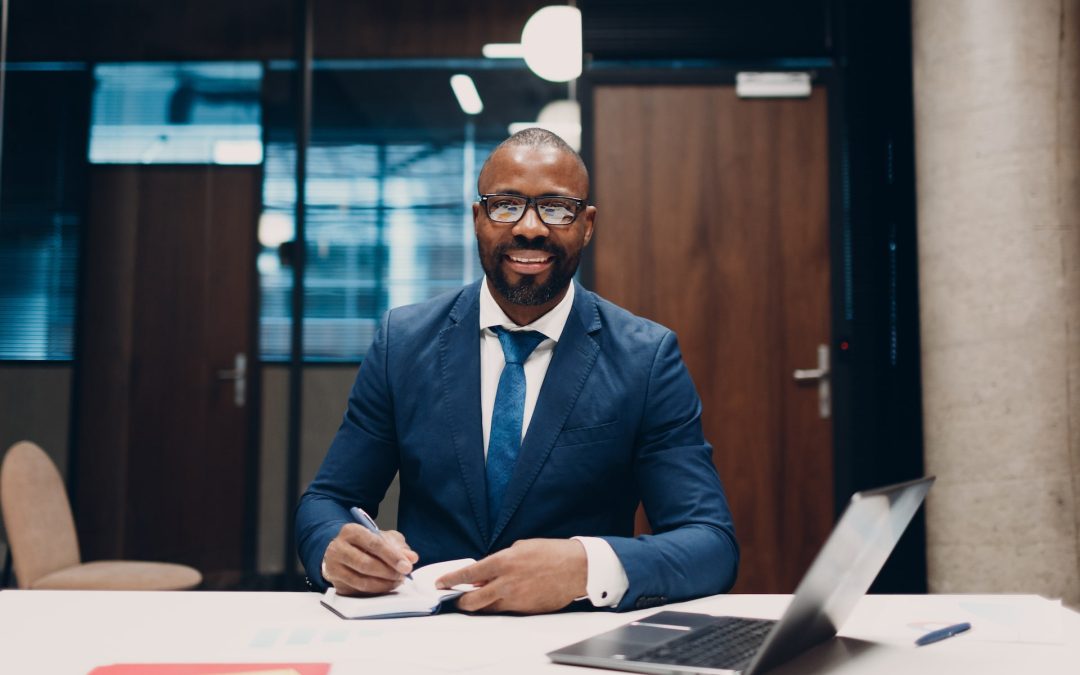
How Trenches Consulting Entered Growth Mode With Lavoie CPA
“The real success was having that partner to talk through the tough times, to handle some of the adversity, and to identify and problem-solve together—some of the things that make running the business easier”
Brad Olecki, CEO and founder of Trenches Consulting
Client
Trenches Consulting
Industry
Sports Marketing
From supply chain delays to worker shortages, many businesses have been operating in survival mode since early 2020. But for consulting companies that require each marketing campaign to deliver a solid return on investment (ROI), the survival mode gains a new dimension.
In a recent Hubspot marketing survey, 28% of marketers cited ROI as their top challenge in 2021, while another 21% expect ROI concerns to be their biggest issue in 2022 and beyond. Marketing companies can’t afford to have even a single campaign fall flat. By partnering with a financial consultant, these companies regain the time and mental energy needed to strategize and implement successful promotions.
We recently caught up with Brad Olecki, CEO and founder of Trenches Consulting, who shared how Lavoie CPA provided some much-needed financial guidance for his sports marketing company. Olecki explained how Lavoie helped Trenches gain its financial bearings and made time for senior leadership to do what they do best—making connections between brands and fans.
The Client
Atlanta-based Trenches Sports & Entertainment focuses on consulting and sales for marketing, advertising, and sponsorships in the entertainment space. Trenches tracks down sponsorships that create value for its clients, delivers brand exposure through high-profile events, and prides itself on pairing the right brands with the right partners.
Trenches knows all too well the challenges marketers face today. With the value of sponsorships constantly changing, Trenches is always on the lookout for unique partnerships that can connect top brands to their target audience.
The Challenges
With the current state of fast-paced marketing strategies, it can be tough for consultants to isolate areas they need to develop for higher growth. What’s even more difficult is trying to strategize and attract key clients while also handling financial nuts and bolts–like invoicing, growth projection, and tax planning.
Like many startups, Trenches had been managing its own finances through Quickbooks. While it has its place for general bookkeeping, Quickbooks can’t handle the big-picture planning and projection that today’s marketing companies need.
As Olecki explained, he was “just kind of bumbling my way through it, not really being effective,” when a business partner recommended Lavoie CPA. After connecting with Shari and the Lavoie team, Olecki realized how much a deep dive into Trenches’ finances would help shape the business. With Quickbooks, Olecki said, “there was no personality. There was no expert tied to it. It was limited to my knowledge and expertise,” he laughed, “which I’ve told Shari on multiple occasions I have none of when it comes to the financial space!”
Not only did Trenches need help chasing down outstanding invoices and receivables, but after spending two years in survivor mode during the pandemic, it was ready to start growing again. This meant getting a big-picture view of income and outflow, profitability, and ROI.
Lavoie helped Olecki and other Trenches leadership pursue some of the federal benefits available to businesses, including PPP loans and Employee Retention Credits (ERCs) under the CARES ACT. “These things weren’t necessarily on my radar,” said Olecki. “Lavoie provided me with the tools and the information in the background that I needed to grow and scale.”
The Solution
“A key component to the success we had working with Lavoie is that Shari understood the challenges we faced,” Olecki said. “She has an entrepreneurial spirit and approached things much like we do at Trenches, which is very, very important.” He continued, “the real success was having that partner to talk through the tough times, to handle some of the adversity, and to identify and problem-solve together—some of the things that make running the business easier.”
Along with PPP and CARES Act benefits, Trenches was able to improve its cash flow by following up on delinquent accounts while also collecting the data needed to assess its financial standing, tax liability, and other key metrics. Having this information made it far easier to run growth projections and get a better grasp on the company’s finances. And when it comes to the ROI of marketing campaigns, solid financials make it far easier to drill down into what works and what doesn’t.
“Partnering with Lavoie allowed me to do what I do best, which is run our key services and offerings,” said Olecki. “I rely on them to do a lot of that administrative work that would have fallen apart under my guys if I didn’t add it on.” Olecki noted that he “really loves the flexibility that came with Lavoie working to fit us, as opposed to us having to fit into a box they already had.”
When asked what’s next for Trenches, Olecki replied, “I think we want to continue to build and sustain… we now can enter into a little more of a growth model mindset.” From helping Trenches optimize its cash flow and develop an exit plan to strategizing new financial opportunities, the Lavoie team is glad to be along for the ride.
At Lavoie, we combine technology and strategic thinking to give you the full picture of your business—past, present, and future. Give us a call at (704) 481-6699 or fill out the contact form to talk about how Lavoie can help your growth strategies.




